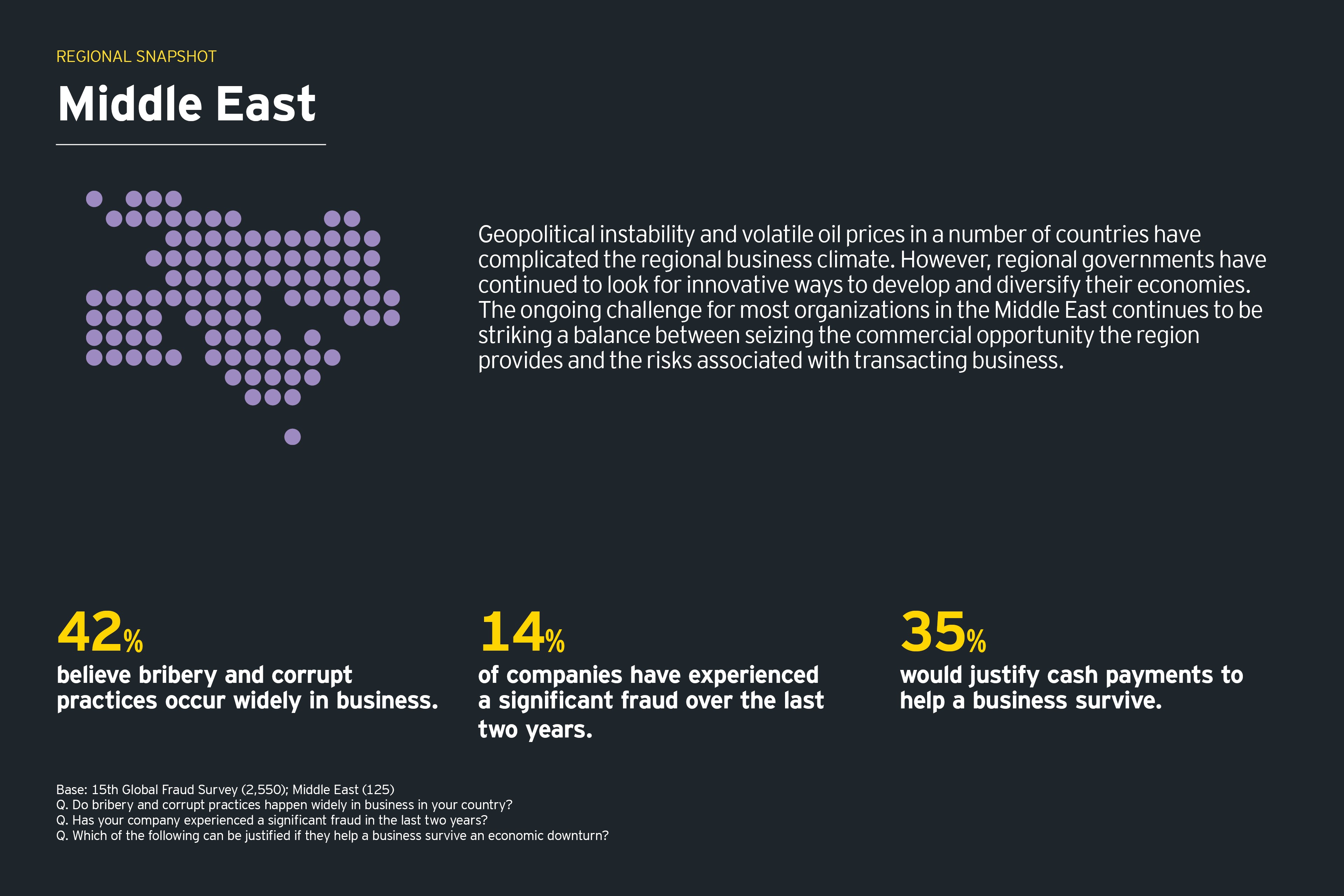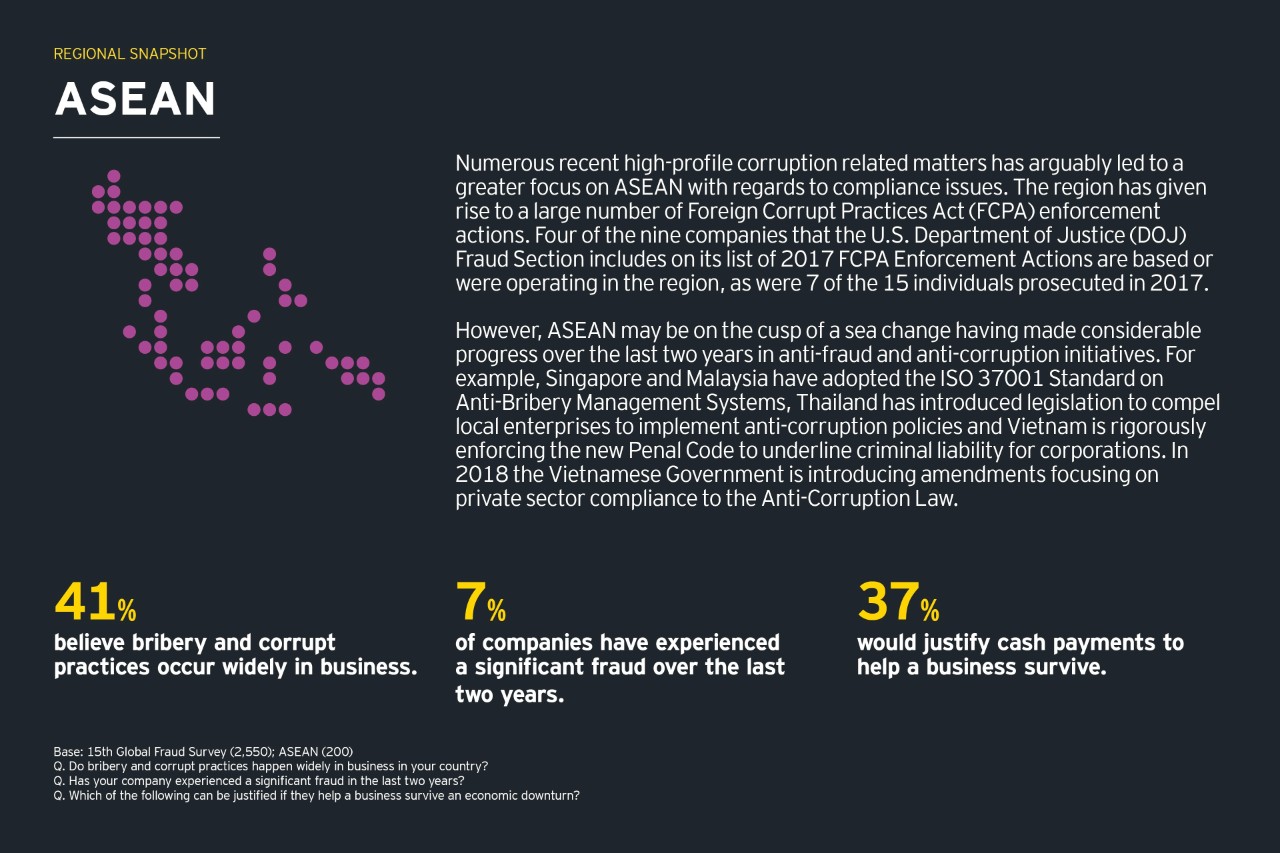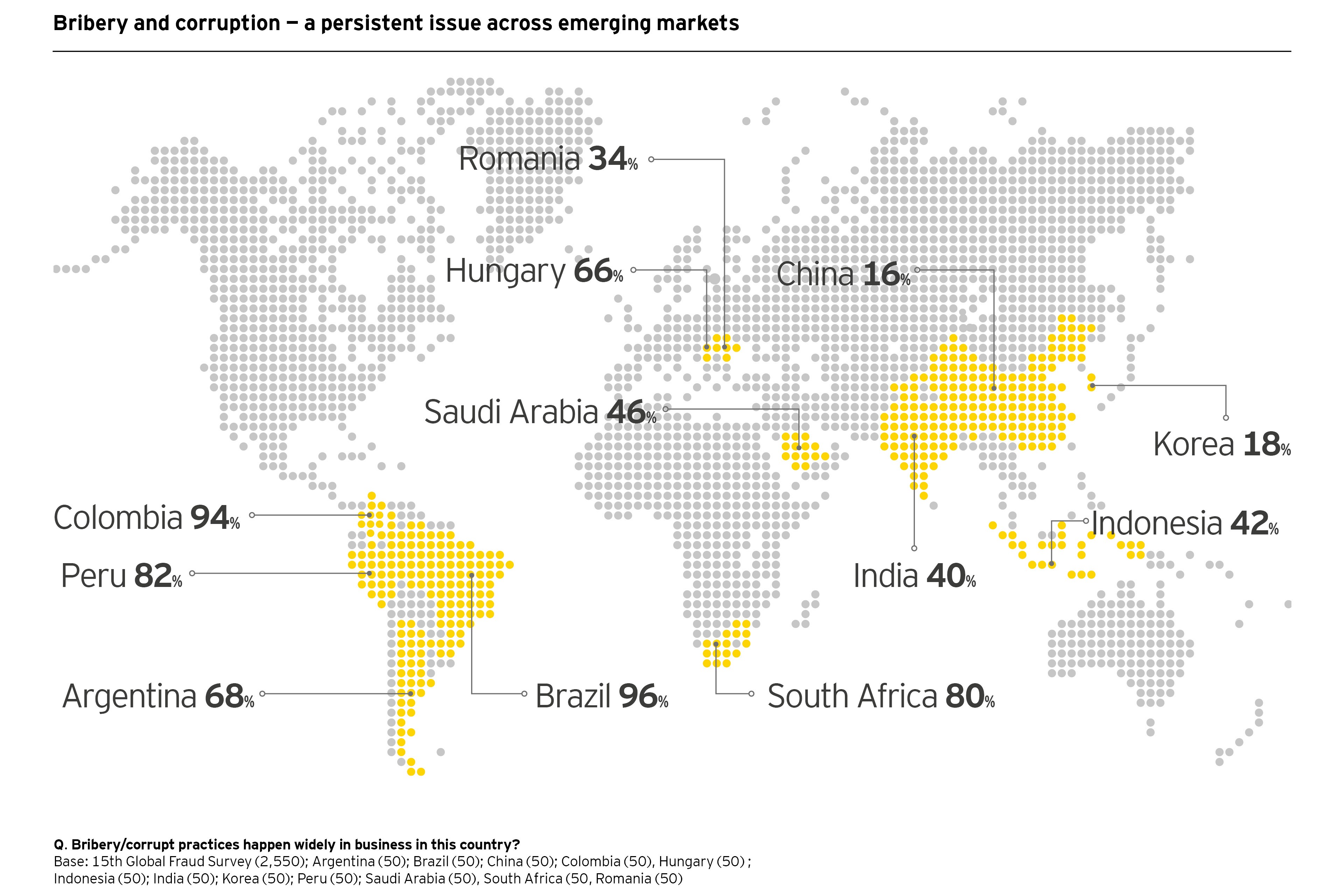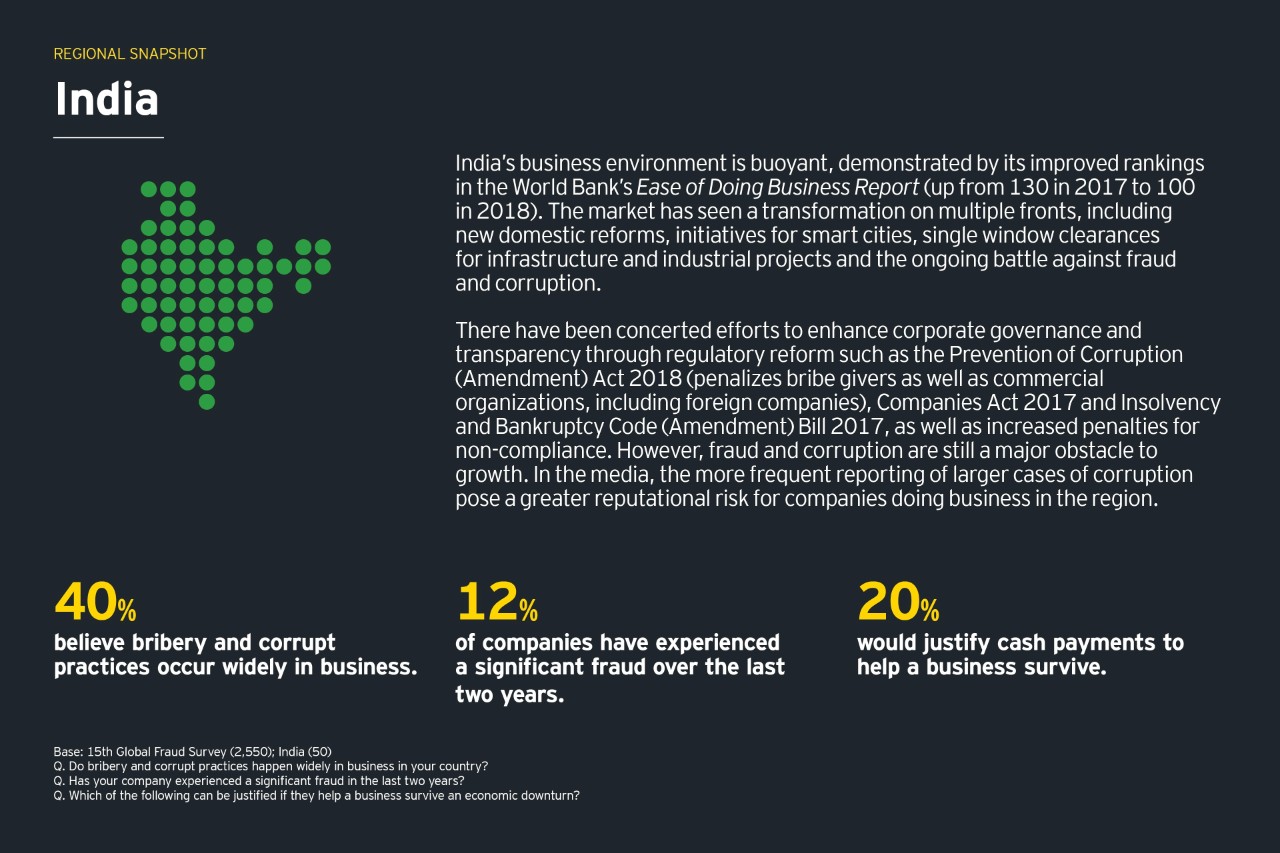
Sixteen percent of respondents from emerging markets acknowledged “it is common practice to use bribery to win contracts.”
In this context, the survey also finds that there are many situations in which organizations, its employees or representatives may feel that some form of incentive to a third-party is necessary to guarantee their company’s survival. High-risk activities include licensing, procurement, invoicing, payments, materials and supplies.
A bribe can range from a small facilitating payment to clear goods through customs, to hundreds of thousands of dollars to win a public tender for a major infrastructure project. The risk to the company of prosecution extends beyond its own employees’ activities to the corrupt actions of third-party representatives, such as distributors, agents or joint venture partners.
More critically, the EY Integrity in the spotlight report also shows that still too many executives believe that it is acceptable to give cash payments in exchange for commercial advantage. Nineteen percent of emerging markets respondents felt this could be justified compared with just 6% in developed markets.
Global Fraud Survey 2018
19 %of respondents from emerging markets said cash payments can be justified if they help a business survive economic downturn

In many countries, cultural traditions such as wining and dining and the provision of high-value gifts and entertainment are considered integral to doing business. However, such practices have become much less commonplace in recent years, particularly in developed markets. More pertinently, in emerging markets, seeking to gain a commercial advantage through offering prospects or clients lavish corporate hospitality ahead of an important deal or contract makes a company — and its executives — potentially liable under anti-corruption legislation.
Finally, there are economic factors to consider. In most emerging markets, there is a significant difference between the incomes of employees in the private and public sectors — and the urge to seek personal gain at the expense of the public can be difficult to resist.

The impact of changing legislation in emerging markets
Overall, corporate executives in emerging markets have seen little significant improvement in the business environment from a fraud and corruption perspective over the last four years. In some countries there were significant changes in the perceptions of fraud and corruption. Saudi Arabia for example increased from 26% to 46%. There were also some improvements in certain emerging markets with India reducing from 67% to 40% and Romania dropping from 46% to 34%.

An increasingly important factor that multinationals operating in emerging markets should be addressing is the introduction, and more rigorous enforcement, of local anti-corruption legislation.
From a legal perspective, most countries of the world, including many in emerging markets, have had anti-corruption embedded into their domestic legislation for many years. A number have signed the UN Convention against Corruption; many have also signed the Organization for Economic Co-operation and Development (OECD) Anti-Bribery Convention.
Many emerging markets have strengthened their enforcement regimes. China’s all-embracing anti-corruption campaign has been well publicized, but there are other examples of governments making anti-corruption activities a priority. This includes Korea (the Kim Young-ran Law, 2016) and India (Prevention of Corruption (Amendement) Act, 2018 and Fugitive Economic Offenders Bill, 2018), and the countries in Eastern Europe and Central Asia. More importantly, these nations have started to enforce these statutes with more rigor than ever before. This has led to some high-profile cases that have seen prominent business leaders prosecuted, and even heads of state impeached and removed from office.
While there continues to be a high volume of prosecutions from the U.S. Department of Justice under the FCPA, domestic efforts to combat bribery and corruption are also being reinforced by growing cross-border cooperation through bodies such as the SEC, G20 and the OECD. Other examples of cross-border initiatives include extraterritorial legislation, such as France’s Sapin II.

Integrity in emerging markets
The declared intentions of an organization may be clear: policies and codes of conduct are in place, senior leaders demonstrate commitment via formal and informal communications. Yet, recent high-profile scandals at major corporations show that aberrational misconduct by executives has persisted and gone unnoticed for long periods of time. When the misconduct finally surfaced publicly, expensive investigations have ensued, fines have mounted and individuals have been prosecuted.
The Integrity Agenda has four foundational elements that align an individual’s actions with the organization’s objectives:
- Governance, including policies that guide organizational behavior
- Culture
- Controls and procedures
- Insights
The core challenge is to influence the behavior of diverse and dispersed employees and third parties amidst intense competitive pressures and rapid technological change. Two areas of the Integrity Agenda that could deliver significant benefit in emerging markets are Culture and Insights.
The EY survey results show a mismatch between the 97% of respondents in emerging markets that believe it is important to demonstrate their organization acts with integrity and 19% who would still justify making a cash payment to win a contract.
Culture
In emerging markets, it is particularly challenging to create a raft of integrity across the company, not to mention in third-party agents and distributors in the supply chain. It is imperative to enhance the effectiveness of compliance procedures and technology and build a sound corporate culture to promote integrity at all levels.
Corporate culture plays a crucial role in building a system that truly safeguards a company’s reputation. But for executives in some emerging markets, creating a culture that achieves this goal may be a relatively new concept.
Insights
These are highlighted on page 9 of our pdf.
The EY Global Forensic Data Analytics Survey: 2018 (pdf) shows the extent to which companies are introducing data analytics in their compliance systems. This technology provides insights into specific compliance risks at the market, country, regional and customer level. It also delivers real-time business information at the point of an employee’s interaction with customers or third parties in a high-risk territory. To achieve the full potential of FDA, companies should aim for better integration; leverage the right technologies, data and people; and secure strong leadership support.
Summary
In trying times, management needs to boost the ethical agenda, redefine compliance programs and adopt a technology-centric approach driven by data analytics to minimize integrity lapses.


